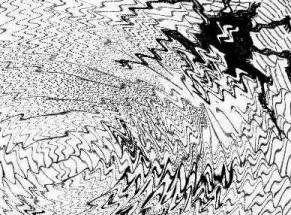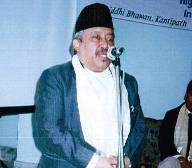 The delay in the second round of formal talks between Prime Minister Girija Prasad Koirala and Maoist chairman Prachanda may have cast some uncertainty over the peace process, but it certainly hasn’t stopped the rebel chief from holding another vital summit.
The delay in the second round of formal talks between Prime Minister Girija Prasad Koirala and Maoist chairman Prachanda may have cast some uncertainty over the peace process, but it certainly hasn’t stopped the rebel chief from holding another vital summit.Casting aside protocol, the supreme commander in chief of the People’s Liberation Army held talks with Nepal Army chief Gen. Pyar Jung Thapa. Had the House of Representatives heeded former premier Sher Bahadur Deuba and allowed King Gyanendra to retain the supreme C-in-C job without the uniform, Prachanda might have finally ventured into Narayanhity Royal Palace. (On second thoughts, maybe he already has and will tell us about it in due course.)
News of the soldier-to-soldier summit came from Prachanda himself. At a public program in the capital, the Maoist supremo said he had met the NA chief for consultations on managing weapons. Gen. Thapa, according to Prachanda, said he would follow any modalities laid down by Prime Minister Koirala.
This prompted Prachanda to thank Gen. Thapa for his faith in the prime minister. (The comrade in chief finally seems to have discovered who holds the actual reins of power.)
Prime Minister Koirala’s own telephone conversation with Prachanda around this time was no less revealing. Koirala, we understand, told Prachanda that he should seize the opportunity for peace while he (Koirala) is still alive. With no presumed successor to the ailing Koirala in sight within his Nepali Congress, the situation is bad enough. We don’t know whether the Nepali Congress would even get the premiership should Koirala, God forbid, depart.
Prachanda, for his part, is taking his own time. Having emerged from decades in the shadows, he deserves all the sunshine he can bask in – and on both sides. Days after rejecting the government’s letter to United Nations with own missive to Kofi Annan, Prachanda still professes good faith. He has begun consultations with a UN mission headed by Staffan de Mistura to “forge a common understanding.”
The rebel chief has extended the ceasefire for another three months, but not without a stern warning. “We want to follow the pact we signed with the seven-party ruling alliance and take peace talks forward,” he said. “But if that fails, we would be compelled to begin another intense though peaceful people's movement.”
Consider the Maoists’ plight: Everyone barring the Chinese has explicitly called for the rebels’ disarmament before the formation of an interim government. Even the Indians who “forged” the SPA-Maoist alliance don’t want to see armed Maoists in power.
The Maoists aren’t talking about an armed political party like Hezbollah. They are talking about a well-regulated people’s militia, something along the lines of what the Second Amendment to the US Constitution envisages. (Maybe Prachanda should reach out to the National Rifle Association for some PR help.)
And the Americans? Didn’t they once recognize a coalition government in exile an armed Khmer Rouge was part of when the Vietnamese were running the show back home?
Linger a little longer with the Chaudharis and the Khetans and it might be too late to go back to the jungles. Surely, Ganapathy and his band of Naxals must be seething at this betrayal of the revolution.
But maybe Prachanda is really biding his time. Without Koirala, the SPA would just implode. The Maoist truce is set to expire in the last week of October, right? So Prachanda can still make good on his threat to launch that much-vaunted revolution.










